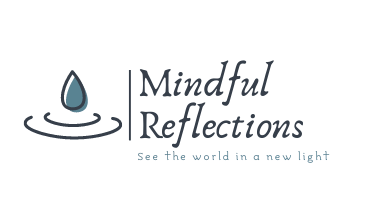The Long-Term Effects of Unresolved Birth Trauma: Let’s Talk About It
Birth is supposed to be one of the most magical experiences of your life, right?
But for many women, it turns out to be anything but. If your birth experience wasn’t what you hoped for, you’re not alone.
Sometimes, what happens during childbirth can stick with you, and it’s totally okay to talk about it.
Let’s explore what birth trauma is, how it can affect you, and what you can do to heal.
What are the signs and symptoms of birth trauma?
Feeling a bit off after giving birth?
You’re not alone.
Birth trauma can show up in lots of different ways. Maybe you’re having trouble sleeping, or feeling really anxious or down. You might be avoiding certain places or situations that remind you of your birth.
Or, you might be experiencing physical aches and pains. These are just a few examples, and it’s important to remember that everyone’s experience is different.
Here are some common signs to look out for:
- Emotional symptoms: feeling anxious, depressed, overwhelmed, or numb
- Physical symptoms: trouble sleeping, changes in appetite, chronic pain, headaches, or fatigue
- Relationship challenges: feeling disconnected from your partner or baby
- Avoidance behaviors: avoiding places, people, or activities that remind you of the birth
- Intrusive thoughts or flashbacks: reliving the birth experience
- Difficulty concentrating or making decisions
- Feeling overwhelmed by guilt or shame
- Changes in sex drive or body image
- Physical symptoms related to the birth: pelvic pain, bladder or bowel issues, or persistent pain around your c-section scar
Birth trauma isn’t just about big, dramatic events. It can also come from feeling unsupported, unheard, or rushed during your labor and delivery. Maybe you felt pressured to make decisions you weren’t comfortable with, or like your body’s signals were ignored. These experiences can also lead to feelings of trauma.
It’s important to remember that everyone’s experience is different, and these are just some common signs. If you’re experiencing any of these symptoms, it’s essential to reach out for support.
How can birth trauma affect a mother’s mental health?
It’s no surprise that going through a tough birth can mess with your head a bit.
Birth trauma can lead to feelings of sadness, anxiety, or even post-traumatic stress disorder (PTSD). It can also make it harder to bond with your baby, which is totally normal. The most important thing is to know that you’re not alone, and there’s help out there.
You might feel:
- Overwhelmed and anxious: Constantly on edge or worried about something bad happening.
- Sad or depressed: Feeling down, hopeless, or losing interest in activities you used to enjoy.
- Guilty or ashamed: Blaming yourself for what happened, even though it’s not your fault.
- Difficulty bonding with your baby: Feeling disconnected or struggling to form a strong bond.
- Changes in your relationship with your partner: Feeling distant or irritable.
Birth trauma can also make it harder to cope with everyday stress and challenges. You might find yourself struggling with sleep, having trouble concentrating, or experiencing physical symptoms like headaches or stomach problems.
Birth trauma can also impact your relationships with your partner, family, and friends. You might find yourself withdrawing or feeling irritable, which can strain these connections. It’s important to be gentle with yourself and to communicate your needs to those around you.
What therapy options are available for healing birth trauma?
Healing from birth trauma is possible, and there are lots of amazing people who can help.
Talking to a therapist who specializes in birth trauma can be a game-changer. They can teach you coping skills, help you process what happened, and provide a safe space to explore your feelings. There are also support groups where you can connect with other moms who get it.
Remember, seeking help is a sign of strength, not weakness.
Some other options to consider include:
- Body-focused therapies: These therapies help to connect your mind and body. Practices like yoga, massage, acupuncture, and pelvic floor physical therapy can help release physical tension, reduce pain, and promote relaxation.
- Mindfulness and meditation: These techniques can help you manage stress and anxiety, and bring you back to the present moment.
- Spending time in nature: Connecting with the natural world can offer a sense of peace and calm.
- Creative outlets: Exploring your creativity through art, music, or writing can be a powerful way to process your emotions.
Remember, finding the right approach for you might involve trying different things. It’s okay to explore various options until you find what works best for you.
How common is birth trauma and what causes it?
Believe it or not, birth trauma is pretty common.
It’s more talked about now than ever before, but that doesn’t mean it’s any less painful or isolating to experience. It can happen for lots of reasons, and it’s important to know that you’re not to blame.
Maybe your birth didn’t go according to plan, or you felt like you didn’t have control over what was happening. It could be that you felt unsupported or scared, or like your body’s signals were ignored. These experiences can be incredibly upsetting and can stay with you long after the birth.
There are many factors that can contribute to birth trauma, including:
- Unplanned medical interventions: like a c-section, forceps, or vacuum extraction
- Feeling rushed or pressured: during labor or delivery
- Lack of support: from medical staff or loved ones
- Feeling like your body was ignored or disrespected
- A traumatic birth outcome: like a stillbirth or neonatal death
It’s important to remember that every birth experience is different, and what might be traumatic for one person might not be for another. There’s no right or wrong way to feel about your birth.
What matters is how it made you feel.
Final Thoughts
Healing from birth trauma takes time and patience. There’s no rush, and there’s no right or wrong way to do it. The most important thing is to be kind to yourself and to seek support when you need it. You deserve to feel good in your body and in your mind.
Remember, you’re not alone. There are countless women who have experienced birth trauma, and there’s a growing community of support available. Sharing your story can be incredibly healing and empowering.
It’s okay to ask for help. Reaching out to a therapist, joining a support group, or talking to a trusted friend can make a big difference. You deserve to heal and thrive.
Previous Posts
Complete Guide to Postpartum Depression
You are not alone.If you’ve found your way here, it’s likely that you — or someone you deeply care...
Can You Have Postpartum Depression After Miscarriage?
Miscarriage is a profound and often isolating experience. For many, the emotional impact is deeply...
Postpartum Therapy for C-Section Recovery: Emotional Healing Beyond the Physical
For many mothers, a C-section can feel both miraculous and overwhelming. While the physical scars...





